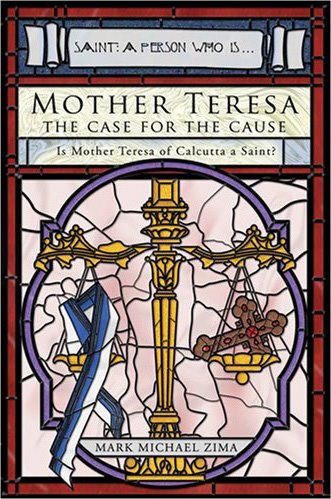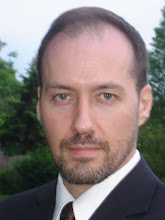The Marian Dimension of Mother Teresa’s Dark Night « Mary Victrix
I am going to run an ongoing blog about this page. It is a good representation of the kind of responses I receive from certain "Catholics." At present, there are priests and bishops reading my book. I have friends who are priests. They are priests of all different backgrounds. All of them believe the priest and on this website, Fr. Angelo, is not well.
After Fr. Angelo definitely stated that he did not want any more posts, I asked a friend of mine, who is a parish priest, to look at Fr. Angelo’s comments and give me his opinion if I should let Fr. Angelo know that he was destroying a “straw man.” The priest responded by telling me, I choose my words carefully, not to waste my pearls. I say this not to be mean but to show that Fr. Angelo’s opinion is not the dogma of the priests, and the priests I know feel very strongly that Fr. Angelo is fatally flawed in his opinion.
Do not think that I came to send peace upon earth: I came not to send peace, but the sword. For I came to set a man at variance against his father, and the daughter against her mother, and the daughter in law against her mother in law. And a man's enemies shall be they of his own household.
These are the words of Jesus (Mt. 10:34-36). It is not my expressed desire for conflict but if conflict comes to the Church because of my book’s fidelity to the Gospel, I welcome the conflict.
The rhetorically ruff exchange on Fr. Angelo’s webpage started when I came across his blog. I know Fr. Angelo personally but have not spoken with him in 5 years. I have lived with his community (Franciscans of the Immaculate) and even thought about joining them. I did not join them because they seemed to have the veneer of Traditional Catholicism but lacked the substance thereof.
Fr. Angelo posted:
Not so long ago, with the publication of Blessed Mother Teresa’s letters to her spiritual director much misinformation was disseminated about her “dark night,” namely, that is Mother had lost her faith. The arch-atheist, Christopher Hitchen’s and other anti-Catholic enthusiasts were quick to vilify this holy woman, whose trial should be a source of edification.
Recently Zenit interviewed Missionary of Charity Father Joseph Langford, cofounder with Mother Teresa of her community of priests, the Missionaries of Charity Fathers, about his new book Mother Teresa: In the Shadow of Our Lady.
Blessed Teresa, like Our Lady, took the road to Jerusalem in obedience to Jesus: Unless you pick up your cross and carry it, you cannot be my disciple. Perseverance in the dark night of faith is spiritual chivalry, spiritual prowess and largess, and in the case of Mother Teresa, it is an extension of the Marian Way of Beauty.
One cannot argue with likes of a blasphemer like Hitchens. In an debate between him and Bill Donahue of the Catholic League he referred to the faith-based defense of Mother as “white noise.” All we can do is say to Hitchens is “come and see.” His only hope is the Way of Beauty . . . and of course, prayer and fasting. Here is an excerpt of the Zenit interview with Father Langford:
Q: What did you learn about the Blessed Mother from Mother Teresa?
Father Langford: The book is a compendium of what I learned of Our Lady over the years, from watching and listening to this Saint of the Gutters. It is a simple apologia for Our Lady’s role, wrapped not in polemics, but in the humble sari of one of the gospel’s most credible and approachable witnesses.
It is impossible to observe Mother Teresa’s faith without being reminded of the faith of Our Lady. Though her darkness bore other names and other dimensions, Mary of Nazareth lived her own night of faith.
Consider Joseph’s months of doubt; finding no room in Bethlehem; the flight into Egypt; the years of Jesus’ absence from Nazareth; the hours of his agony on the cross; and her own agony as he lie in the grave. From these came the lessons of faith she shared with a young Mother Teresa.
Mother Teresa’s own life, and her sense of the role of the Mother of God, was that of “an ongoing Visitation,” a “going in haste” to bring God to others. This Marian vision was based on Mother Teresa’s own experience, but also firmly rooted in scripture.
The Gospel account of the Visitation in the first chapter of Luke shows obvious echoes of the “visitation” made by the Ark of the Covenant to David, also “in the hill country of Judea.” No one disputes that the Ark carried a special anointing of grace and divine presence, that it was itself a “theotokos” (”God-bearer”), though only made of wood.
Can God not do the same and more, in a latter Testament, with a new and better Ark? Are we scandalized that God can make of flesh what once was? Or has our generation understood “neither the scriptures nor the power of God?”
In the end, Mother Teresa would not be one to argue, but simply to say of this Marian mystery, as she so often did of the mystery of Christ hidden in the poor: “Come and see.”I posted:
Mother Teresa did many corporeal works of mercy, and she deserves praise for those works. However, why do those works instantly translate into her having an authentic “dark night of the soul?” Some may reply, “She was also a Catholic.” It is true that she professed many Catholic beliefs but it takes more than the profession of many Catholic beliefs and the performance of the corporeal works of mercy for a dark night of the soul to take place.
Mother Teresa’s “dark night” is based on the presupposition that she was holy. Therefore, her “dark night” is interpreted as a true sanctifying dark night of a Saint. But is that truly the case? Is her life being interpreted correctly? Mother Teresa said, “There is so much contradiction in my soul” (Mother Teresa: Come Be My Light, 169). Perhaps, it was this kind of contradiction to which she was referring, “There are millions who live in Indian cities and villages in ignorance of God and of Christ, in abominable sinfulness. We shall bring them to Christ and Christ to them” (Mother Teresa: Come Be My Light, 116). But then said taught, “We never try to convert those who receive [aid from Missionaries of Charity] to Christianity but in our work we bear witness to the love of God’s presence and if Catholics, Protestants, Buddhists, or agnostics become for this better men—simply better—we will be satisfied” (Mother Teresa: Life in the Spirit, 81). She wanted to preach, “The Kingdom must be preached to all” (Mother Teresa: Come Be My Light, 133). But the kingdom she preached was, “I convert you to be a better Hindu, a better Catholic, Muslim, Jain, or Buddhist” (Mother Teresa: Saint of the Poor, 38–39).
If St. Francis, St. Claire, St. John of the Cross, St. Teresa of Avila, etc., read Mother Teresa’s words in the last paragraph, it is safe to say they would not conclude that her words were the words of a Saint who experienced the dark night of the soul. It is also safe to say that Mother Teresa’s words are not the “Whatsoever he shall say to you, do ye” (Jn. 2:5) of Our Lady.
I believe the common presupposition of Mother Teresa’s “dark night” must give way to a new interpretation of her person. I am sorry for any pain my words and the information I am presenting may be causing some readers. I will leave you with this consolation. St. Thomas Aquinas said, “the lover is not satisfied with a superficial apprehension of the beloved, but strives to gain an intimate knowledge of everything pertaining to the beloved, so as to penetrate into his very soul” (Summ. Theol., la. 2ae., q. 28, a. 2). Accordingly, anyone who loves Mother Teresa cannot desire to represent her other than who she really was. Take all Mother Teresa’s words before the Blessed Sacrament and ask Our Lord if her words are the words of a Saint who experienced the dark night of the soul.
Pax et Bonum,
Mark M Zima
Fr. Angelo responded:
Mark,
I do not find your words painful, and I should hope that others do not. I am sorry that you, a Catholic, have chosen a public forum like this to express your opinions contrary to the teaching of the Holy Father.
I trust Holy Mother Church and her beatification process. That you should defame someone like Mother Teresa, publicly for all to see, and assert your opinions, however astute, in contradiction to a declared beatification is both scandalous and presumptuous. I will not have it here. Period.
The lives of the servants of God whose causes have been introduced for canonization are scrutinized by a “devils advocate,” as you well know, and Mother Teresa’s words would not have been the first to pose theological difficulties which were eventually resolved, leading the way to beatification and then canonization. That you should present rogue opinions to the faithful in the pews contrary to the teaching of the Holy Father is presumptuous to the point of ridiculousness.
I am not going to argue this with you. Even if there were a basis for your contention, which I do not for a second grant, then responsible, humble and qualified theologians whose consciences were so convicted should, according to the proper domain of their mandate, discuss this within scholarly and magisterial circles; however, for an armchair theologian as yourself to write such things, either in a book or a blog, and discuss them as though an authentic Catholic life could be based on such arrogance is irresponsible and reprehensible.
I will say the same thing to you that I would say to a Modernist: if you think you know better than the Pope and are willing to declare it publicly, even to those who are even less qualified to make theological distinctions than yourself, then perhaps you are not ready live as a Catholic.
I have much sympathy for Traditional Catholics who have suffered and continue to suffer by the neglect of fathers within the Church, but that is not an excuse to create more dysfunction within the family. I suspect your position on Mother Teresa is just a small part of a larger hermeneutic of discontinuity. (Full disclosure: Mark and I know something about each other’s theological inclinations as we have met and spoken before).
I sympathize with those who struggle interiorly to remain within the Bark of Peter and who express their spiritual needs respectfully. But I have no respect and will show none for this kind of scandal.
Take it somewhere else.
I am sorry that you have brought it to this. I could not respond to your public and presumably learned comments in any other way.



